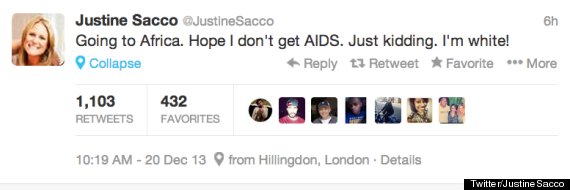(12/30/2013) The world largest online shoes shop -- Zappo's -- has gone through some organizational structure changes. Their new structure is called "Holacracy, a radical “self-governing” operating system where there are no job titles and no managers." As the business continues to grow, the Holacracy introduced into Zappo's is to "scale Zappos without letting bureaucracy set in." This reorganization gets much attention because Zappo's the largest company to implement Holacracy so far. Next time when you are upset by Zappo's customer service representative, you cannot ask "let me talk to your manager!"
Monday, December 30, 2013
Thursday, December 26, 2013
Traffic Controversy of Chris Christie
(12/26/2013) The bridge traffic controversy of Chris Christie (NJ's governor) just could not be distinguished. After reading the details of the whole event, I found it interesting. The controversy is Bill Baroni (deputy director of the Port Authority of New York and Jersey) and David Wildstein (then the director of interstate capital projects and an ally of Christie's) were accused to conduct a unapproved traffic study at the town of Fort Lee in September 2013 on a highway entrance to the George Washington Bridge. Two of three lanes of Fort Lee "to the George Washington Bridge had been closed, causing dangerous traffic jams in the borough on the first day of school." A potential reason of this traffic disaster was that the Mayer of Fort Lee, Mark Sokolich (D), did not endorse Christie's reelection bid and the controversial part is "Neither he nor Port Authority Executive Director Patrick Foye -- who was appointed by New York Gov. Andrew Cuomo (D) -- were given any advance warning." And another development is that Mr. Baroni "acknowledged that no one ever sought approval for the study, which, without an alternative route, was guaranteed to create traffic congestion.... Wildstein and Baroni have since resigned and hired attorneys to represent them."
Definitely the person who caused the traffic disaster know Queuing theory very well. Highway traffic is one example of queuing management. The traffic of Fort Lee is extremely busy in the normal time since "the George Washington Bridge, which is the busiest bridge in the United States," which implies that the highway system at that part has been reached close to its system capacity (maybe close to 90 or 95 % utilization in this case). In a queuing system that it's utilization rate has reached close to its capacity, any cut in the capacity will make the highway utilization reach above 100%, which implies that traffic will be backlogged till the capacity increases or the demand diminishes. In this article, it says "On approximately 20 occasions in the last forty days, our Borough has been completely gridlocked," wrote Sokolich to Baroni, who was Christie's top official at the Port Authority. "Traveling from the south to the north end of our Borough takes upwards of one hour. Our safety vehicles are unable to traverse our own thoroughfares to attend to emergencies which place our residents in harms way."
(1/8/2014) In Chinese, we say "Paper cannot cover the fire." Now this scandal exploded in the Governor's office as emails revealed that Christie's administration is linked to the Bridge Traffic retaliation. Christie's trouble is far from over due to these potential lawsuits.
Definitely the person who caused the traffic disaster know Queuing theory very well. Highway traffic is one example of queuing management. The traffic of Fort Lee is extremely busy in the normal time since "the George Washington Bridge, which is the busiest bridge in the United States," which implies that the highway system at that part has been reached close to its system capacity (maybe close to 90 or 95 % utilization in this case). In a queuing system that it's utilization rate has reached close to its capacity, any cut in the capacity will make the highway utilization reach above 100%, which implies that traffic will be backlogged till the capacity increases or the demand diminishes. In this article, it says "On approximately 20 occasions in the last forty days, our Borough has been completely gridlocked," wrote Sokolich to Baroni, who was Christie's top official at the Port Authority. "Traveling from the south to the north end of our Borough takes upwards of one hour. Our safety vehicles are unable to traverse our own thoroughfares to attend to emergencies which place our residents in harms way."
(1/8/2014) In Chinese, we say "Paper cannot cover the fire." Now this scandal exploded in the Governor's office as emails revealed that Christie's administration is linked to the Bridge Traffic retaliation. Christie's trouble is far from over due to these potential lawsuits.
Monday, December 23, 2013
Racist Tweet or Badly Planned Joke?
(12/23/2013) A PR executive tweeted a 'racist' message before she flew to Africa for vacation:
This message stirred a huge controversy and Justine Sacco was immediately fired by her employer. Justine Sacco immediately apologized on the Internet: "Sacco apologized "for being insensitive to this crisis -- which does not discriminate by race, gender or sexual orientation, but which terrifies us all uniformly -- and to the millions of people living with the virus, I am ashamed."".
But several people who knows Justine Sacco think it was a badly planned joke. One reporter who had contacted Justine Sacco describes "“I think she was more mocking the aloofness white people can have on this issue, not celebrating that aloofness,” says one friend."
I think he has a point.
This message stirred a huge controversy and Justine Sacco was immediately fired by her employer. Justine Sacco immediately apologized on the Internet: "Sacco apologized "for being insensitive to this crisis -- which does not discriminate by race, gender or sexual orientation, but which terrifies us all uniformly -- and to the millions of people living with the virus, I am ashamed."".
But several people who knows Justine Sacco think it was a badly planned joke. One reporter who had contacted Justine Sacco describes "“I think she was more mocking the aloofness white people can have on this issue, not celebrating that aloofness,” says one friend."
I think he has a point.
Wednesday, December 18, 2013
Bitcoin Crashing
(12/18/2013) After Chinese government officially challenged the validity of Bitcoin, the value of Bitcoin continued to drop further. Today (12/18/2013), the Bitcoin dropped 17% when "the People's Bank of China (PBoC) has ordered third-party payment providers to stop using the virtual currency." Without a trusted central financial institution (like US Federal government), the users of Bitcoin have to transact on a software follows Bitcoin Protocol. "Users send payments by broadcasting digitally signed messages that transfer ownership of bitcoins, the unit of currency." I never have trust on Bitcoin, and even doubt its function to be used as a transaction currency. Look at the historical value of Bitcoin, if its value fluctuates so dramatically, how can it be used as a currency? Bitcoin itself has become a speculation commodity like gold or oil. When an influential player (like China) challenges its validity, it crashes. It eventually proves to be just a bubble.
(3/5/2014) Not only Bitcoin's volatility is a concern, it's safety just damaging the currency's credibility even further. One week ago, the world's biggest bitcoin exchange, Mt. Gox, filed bankruptcy as nearly half a billion dollars worth of bitcoins were stolen due to computer hacks. Today, another bitcoin exchange, flexcoin.com, is shut down due to another hack and a loss of around $600 K worth of currency. The Japanese government now considers a regulation "adding that banks and securities firms will not be able to handle bitcoin as part of their main business, suggesting the crypto-currency will be treated more as a commodity, like gold." It may means the day that bitcoin survives as a currency is soon to be over.
 |
| Bitcoin historical price accessed on 12/18/2013 |
 |
| Bitcoin price on 12/18/2013. |
(3/5/2014) Not only Bitcoin's volatility is a concern, it's safety just damaging the currency's credibility even further. One week ago, the world's biggest bitcoin exchange, Mt. Gox, filed bankruptcy as nearly half a billion dollars worth of bitcoins were stolen due to computer hacks. Today, another bitcoin exchange, flexcoin.com, is shut down due to another hack and a loss of around $600 K worth of currency. The Japanese government now considers a regulation "adding that banks and securities firms will not be able to handle bitcoin as part of their main business, suggesting the crypto-currency will be treated more as a commodity, like gold." It may means the day that bitcoin survives as a currency is soon to be over.
Microsoft Is Conservative on Surface 2
(12/18/2013) Once burnt, twice shy. Microsoft's revenge product -- Surface 1st generation -- costed $900 million USD charge due to product glitches and overstock. This time, Microsoft's Surface 2 is sold out in many retail stores. The reason it is sold out is because Microsoft is conservative with its production and inventory. Surface 2 received positive reviews and the app crashing and dropped Wi-Fi issues have been improved. With conservative production forecasts, at least Microsoft does not have to be forced to write off inventories or has huge price-cut.
Tuesday, December 17, 2013
How Much Kindles Make You Buy More from Amazon
(12/17/2013) $443 per year, based on a research done by Consumer Intelligence Research Partners (CIRP). The headline on Time.com is misleading. The kindle users don't spend more (some maybe), but other retailers lose $443 per year to Amazon.com. That is what Mr. Bezos gets when he sell you Kindle tablets at the price of its production cost. Kindles do fulfill its mission: get Amazon Kindle users to spend more. Since Kindles suck out spendings from consumer's pockets so well, no wonder Amazon give consumers more BONUS: $57 to own a Kindle Fire FDX tablet and pay the leftover in next 90 days.
Monday, December 16, 2013
A Warning from Carl Sagan
(12/16/2013) This is a video originally aired on "Charlie Rose" in 1996. Carl Sagan, as an outstanding scientist and astronomer, gave us a warning about that general public not knowing science and technology. He said "We live on an age that based on sciences and technologies... if we general public does not understand sciences and technologies ... who is making all the decisions about sciences and technologies are going to determine what kind of future our children will live in."
I think what Sagan said applies to business operations too. Now the business financial and tax manipulations are so complicated, not even financial experts can figure out what's really going on. Same as the global supply chain. The consumers are so far and alienated from the real suppliers, they do not know how their purchasing decisions form the global labor and production division and show less interest to know the complexity too.
I think what Sagan said applies to business operations too. Now the business financial and tax manipulations are so complicated, not even financial experts can figure out what's really going on. Same as the global supply chain. The consumers are so far and alienated from the real suppliers, they do not know how their purchasing decisions form the global labor and production division and show less interest to know the complexity too.
Subscribe to:
Posts (Atom)



